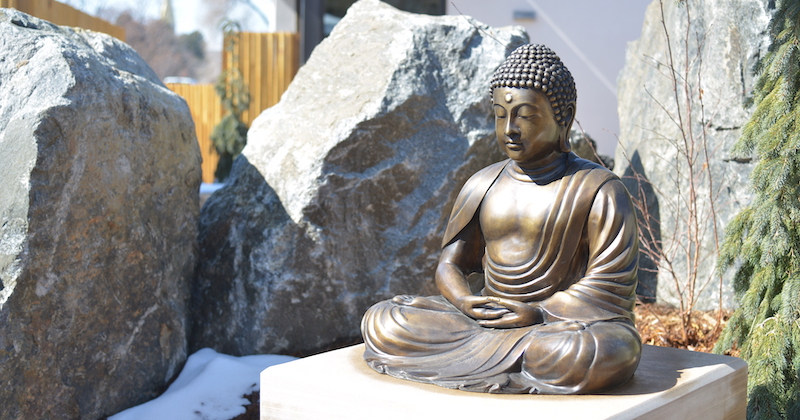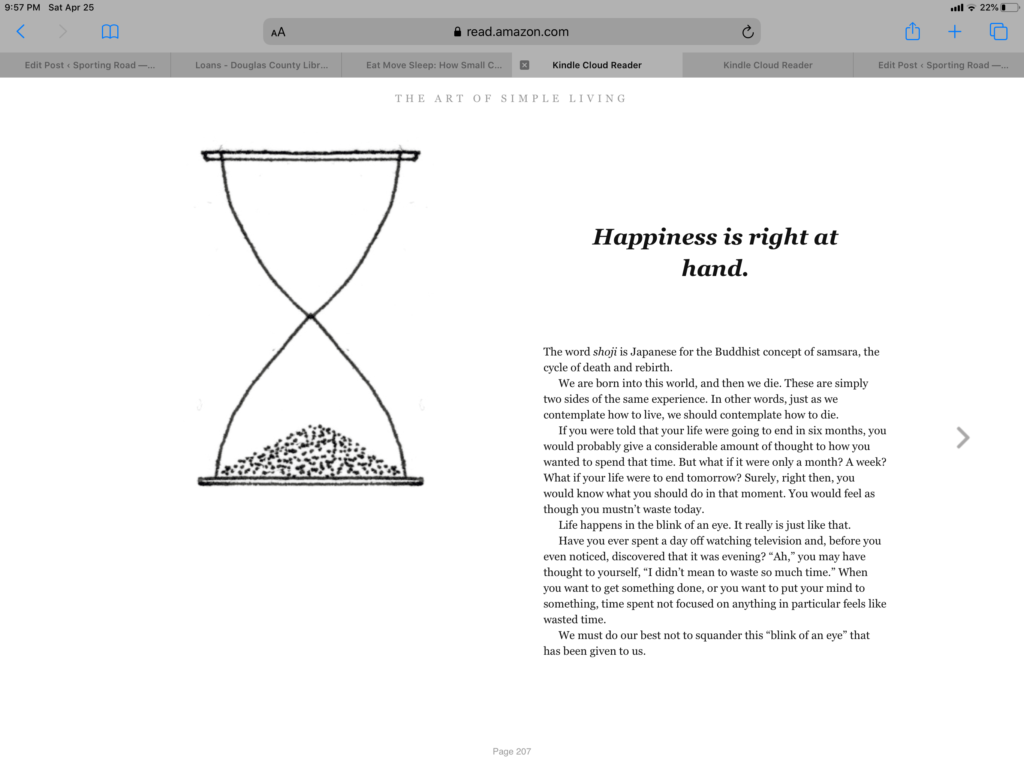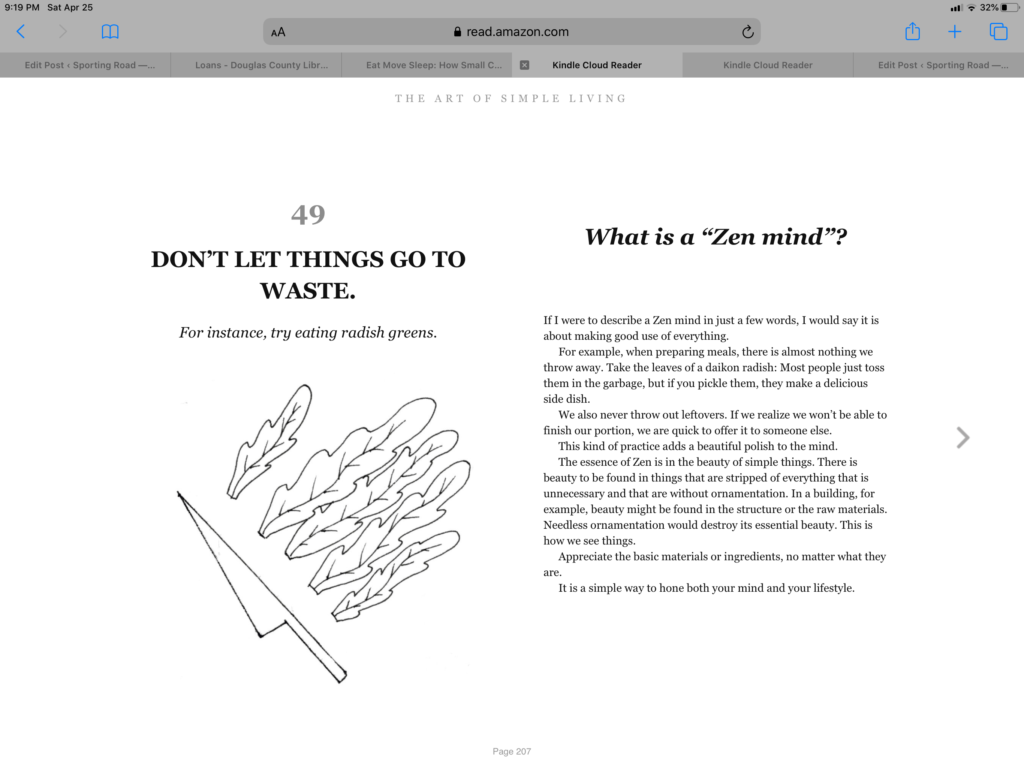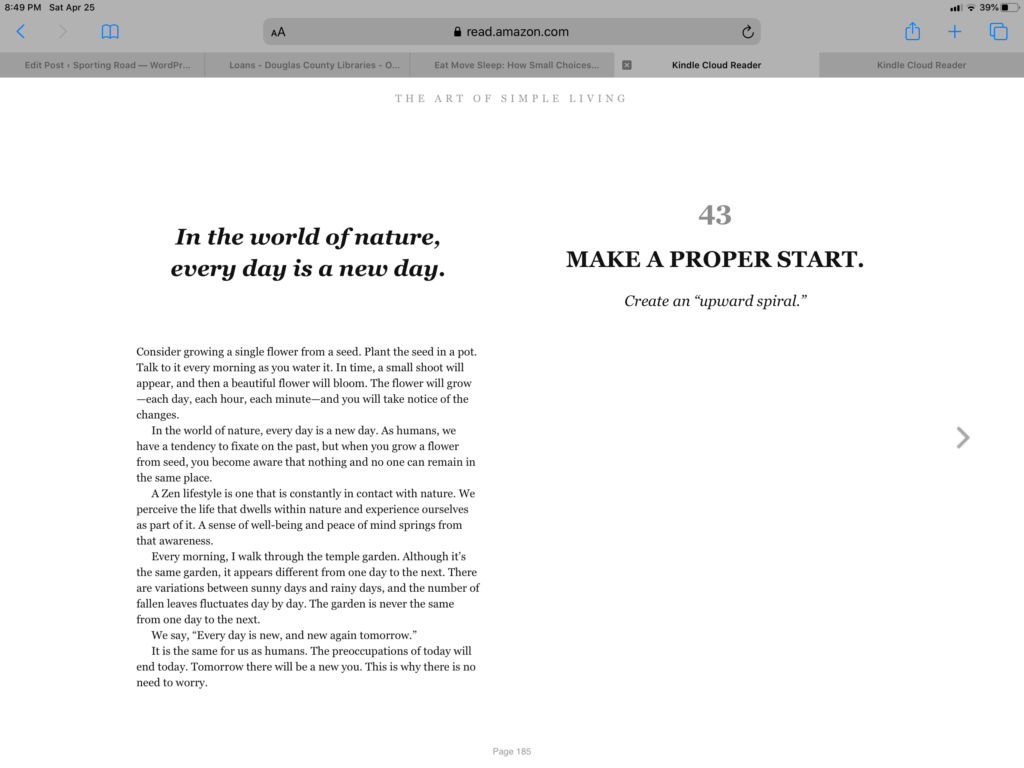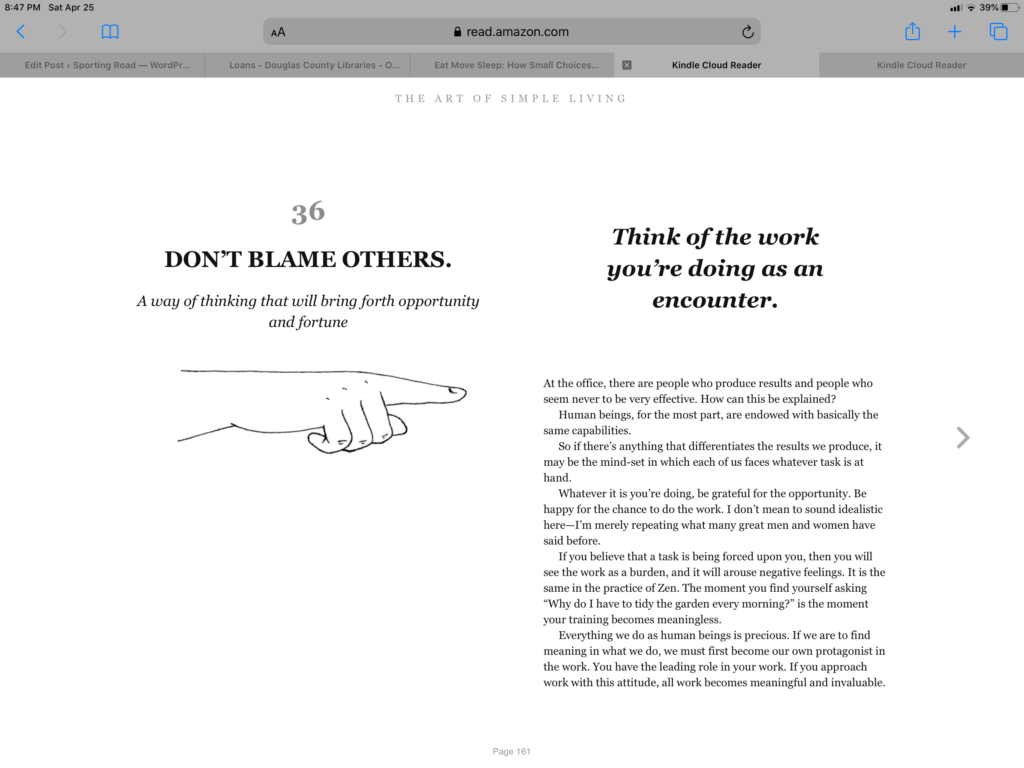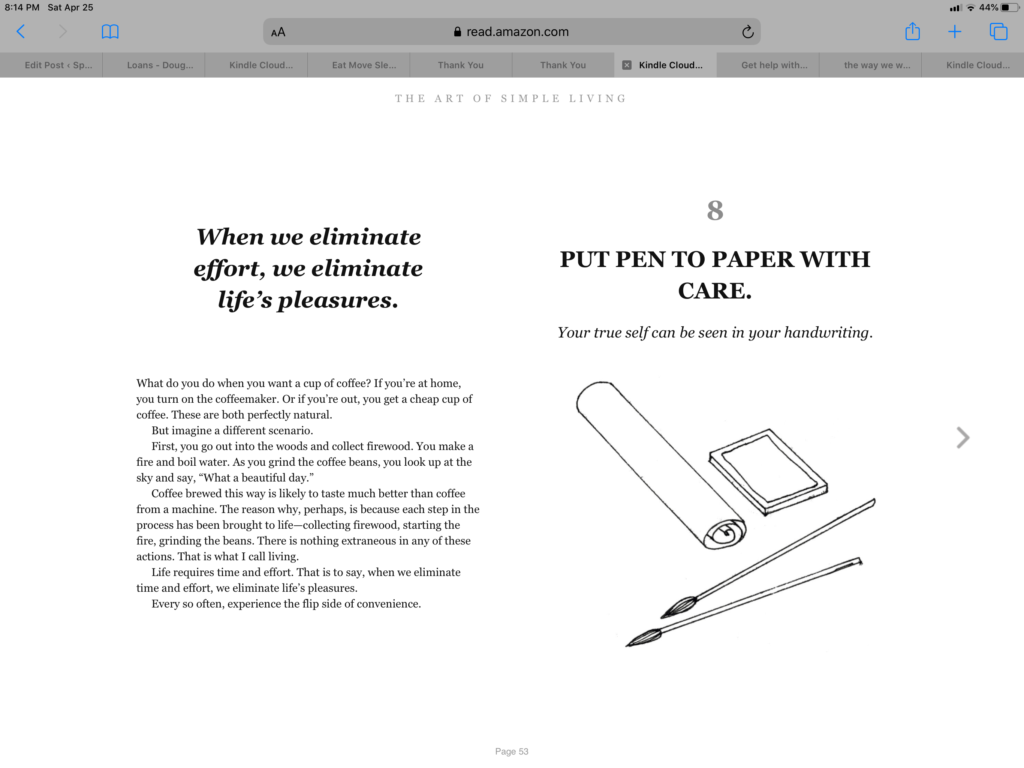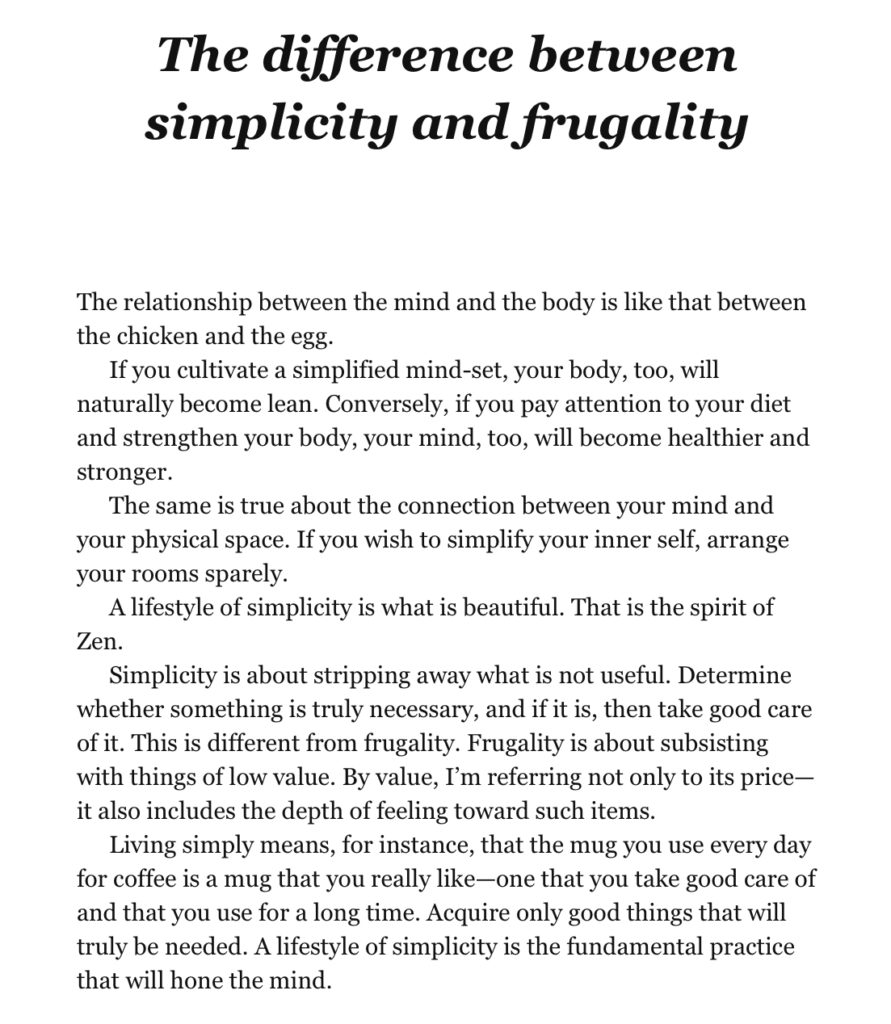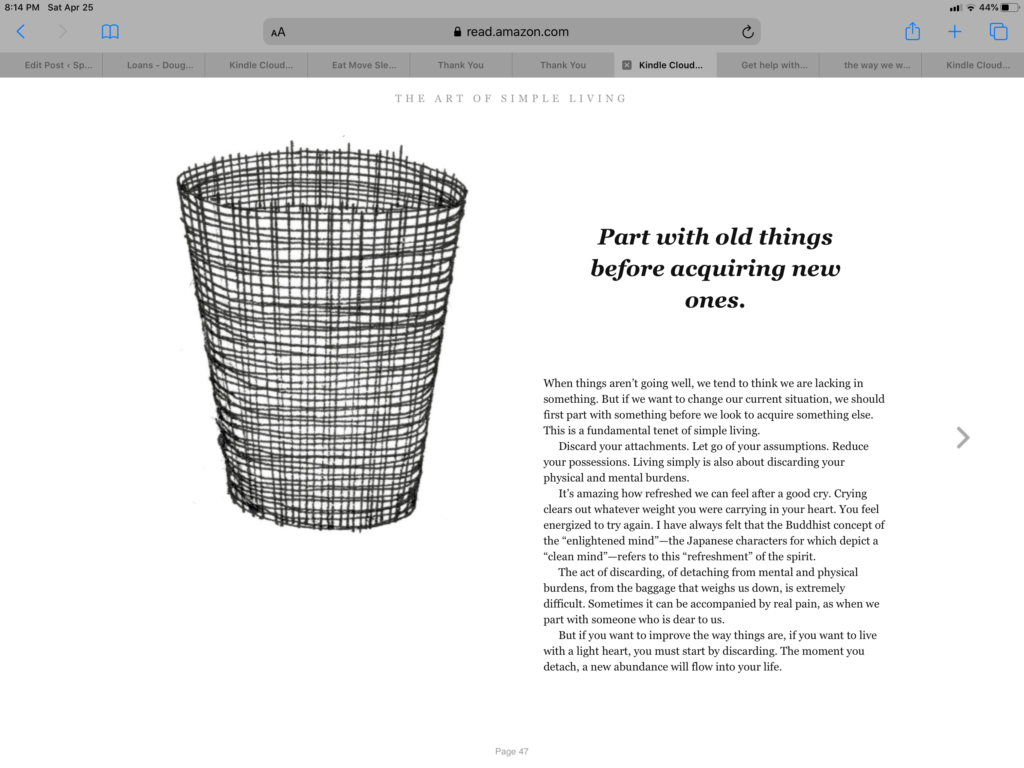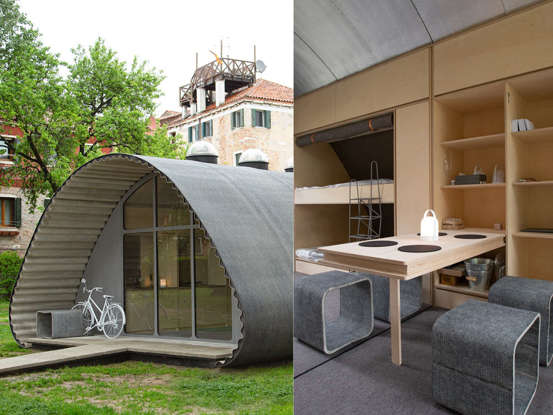Acquire only what you need. This is a famous Zen like saying of minimalists everywhere. And it is apparently becoming more mainstream in 2020, as COVID forces shoppers to stay home and unemployment rises to somewhere between 10-20% depending on the numbers you believe. Possessions we intend to possess sometimes end up possessing us. Now is a good time to thank them for their service and part with them.
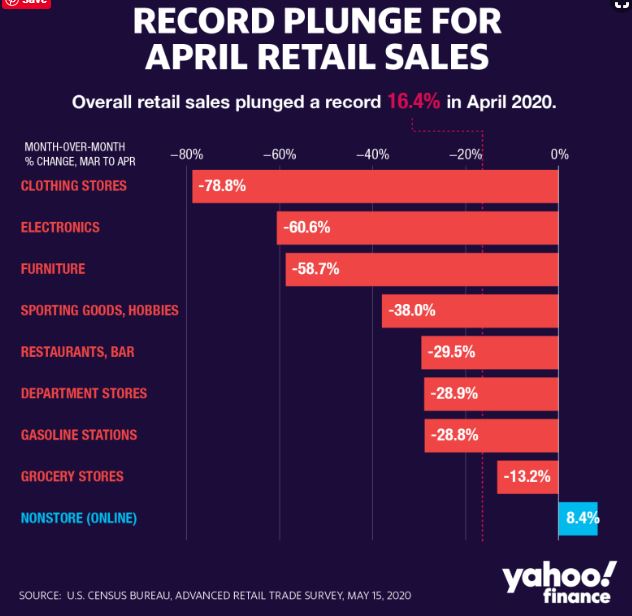
https://finance.yahoo.com/news/coroanvirus-covid-april-2020-retail-sales-165105238.html
Some minimalists are asked by others so do you believe in an ideology or an anti-ideology. The answer is yes, which is both consistent and inconsistent. It’s a way of being, a way of life, that I believe is most important. Some descriptions of the ideology of no-ideologies may include a renaissance man or a new man or a minimalist. Faith bonds and doubt frees and, therefore, it’s necessary to inculcate skepticism in place of blind faith. Nietzsche, Freud, Jesus, Krishna, Buddha all were men at times, gods at others. The messages they speak to are all positive ones. Some might say that we are all Buddhas, each capable of unconditional love and enlightenment and we are capable of reacting to life as well. Move from the periphery to the center. And, only then, are all ideologies or religions very much the same. Living in the present is key, acceptance is key, and only then unconditional love is present.
Goodbye, Things by Fumio Sasaki
Best Quotes For Minimalists from Goodbye, Things
- There are limits to the capacity of your brain, your energy and your time.
- There isn’t a single item you will regret throwing away.
- Let go of the idea of “some day.”
- Fewer things does not mean less satisfaction.
- Discard it if you’ve thought about doing so five times.
- Minimalism is not a competition, don’t boast about how little you have, don’t judge someone who has more than you.
Best Questions
- If you lost it, would you buy it again?
- What if you started from scratch?
- Why can’t I part with my things?
- What would the person who passed away have wanted?
55 tips to help you say goodbye to your things
- Discard the preconception that you can’t discard your things.
- Discarding something takes skill.
- When you discard something, you gain more than you lose.
- Ask yourself why you can’t part with your things.
- Minimizing is difficult, but it is not impossible.
- There are limits to the capacity of your brain, your energy and your time.
- Discard something right now.
- There isn’t a single item you will regret throwing away.
- Start with things that are clearly junk.
- Minimize anything you have in multiples.
- Get rid of it if you haven’t used it in a year.
- Discard it if you have it for the sake of appearance.
- Differentiate between things you want and things you need.
- Take photos of the items that are tough to part with.
- It’s easier to revisit your memories once you go digital.
- Our things are like roommates, except we pay their rent.
- Organizing is not minimizing.
- Tackle the nest (storage) before the pest (clutter).
- Leave your unused space empty.
- Let go of the idea of “some day.”
- Say goodbye to who you used to be.
- Discard the things you have already forgotten about.
- Don’t get creative when you’re trying to discard things.
- Let go of the idea of getting your money’s worth.
- There is no need to stock up.
- Feeling the spark of joy will help you focus.
- Auction services are a quick way to part with your possessions.
- Use auctions to take one last look at your things.
- Use a pick up service to get rid of your possessions.
- Don’t get hung up on the prices that you initially paid.
- Think of stores as your personal warehouses.
- The city is our personal floor plan.
- Discard any possessions that you can’t discuss with passion.
- If you lost it, would you buy it again?
- If you can’t remember how many presents you’ve given, don’t worry about the gifts you’ve gotten.
- Try to imagine what the person who passed away would have wanted.
- Discarding memorabilia is not the same as discarding memories.
- Our biggest items trigger chain reactions.
- Our homes aren’t museums, they don’t need collections.
- Be social, be a borrower.
- Rent what can be rented.
- Social media can boost your minimizing motivation.
- What if you started from scratch?
- Say “see you later” before you say goodbye.
- Discard anything that creates visual noise.
- One in, one out.
- Avoid the concord fallacy.
- Be quick to admit mistakes, they help you grow.
- Think of buying as renting.
- Don’t buy it because it’s cheap, don’t take it because it’s free.
- If it’s not a “hell yes!” it’s a no.
- The things we really need will always find their way back to us.
- Keep the gratitude.
- Discarding things can be wasteful, but the guilt that keeps you from minimizing is the true waste.
- The things we say goodbye to are the things we’ll remember forever.
Live Like You Were Dying
Almost every time I hear the song “Live Like You Were Dying” from Tim McGraw, I get a little emotional. This song seems to strike a chord with most people. It is a way of living that we all admire.
My mother subscribed to National Geographic magazine and dreamed of traveling the world when she retired. And she did, until retirement funds got tighter and then both of their health started failing. The Coronavirus craze is bringing this same train of thought home to many people these days, as we are forced to stay home and our bucket lists have temporarily changed. Why work all of your life to save for retirement if you can’t then enjoy it?
A list of stuff you own isn’t going to matter. They say you spend the first half of your life collecting stuff and the second half giving it away. I just turned 50, and I believe that to be true. Now more so than ever.
We should take chances, live our dreams and treat people as if it were the last time you will see them. There is a saying in yoga that death is a great teacher.
Most people have a bucket list … the things they would like to do before they pass on from this world. The trouble is many of us wait until it’s too late. We think we don’t have the time, we think we don’t have the money. But lots of things in life are free—build the snowman, enjoy playing with a puppy, play all of those old board games in the closet with those you love, take a few minutes for yoga or meditation, go on a walk, build a tree fort, climb a tree, hike over a boulder, ride a horse, be a cowboy, enjoy nature, take run, go fishing, be present. Eat, sleep, move.
Other people have a bucket list of motivational quotes:
Find forgiveness and compassion for all the wrongs that you feel dealt from others. Life is too short to hold onto any of that nonsense that can slow you down with living in the past. Liberate yourself from the past and try to worry less about the future. Be present and mindful here and now.
Becoming a minimalist. Live life from one suitcase.
What should I do from now on?
Enjoy the freedom of life. Be resilient.
If you want your life to be different, you have to make it happen.
Later doesn’t come for everybody. Do it now. -Shaquille O’Neal’s Mom
Be indistractable. Just do what needs to be done, don’t think about it. Just let others be. Be grateful. Be kind.
Spend less time thinking and more time doing.
Once a goal is done, it’s time for the next goal. There is no finish line in life.
Control your mind. Just get it done. No excuses.
Trust your instinct. Believe in yourself. That’s it.
You are capable of 20x more than you think you can. Embrace the suck.
No matter your routine, make sure you aren’t putting your goals and dreams on pause. This is the perfect time to commit to a new daily routine that prioritizes what you want in life – one that replaces the temptation of a mindless TV binge with the promise of personal growth.
IF YOU ONLY DO WHAT YOU CAN DO, YOU WILL NEVER BE MORE THAN YOU ARE.
A journey of a thousand miles must begin with the first step.
Dogs wake up every day without self pity and go about their day. Try to simply do the same.
BREATHE.
Just let others be.
Manifest plainness, embrace simplicity.
One choice, one change, one chin-up at a time.
Action motivates. Motivation will follow if you have the balls to go out and do it.
Productive work is the central purpose of a rational man’s life.
Appreciation is to have sensitive awareness, curiosity to another person. Appreciation involves not looking for what is wrong. Focus on the positive. Master the art of appreciation in relationships. Commit to a quantum positive shift in giving and receiving appreciation. All powerful change begins with a moment of positive commitment. Lead with appreciation.
Our thoughts matter, in fact they become matter.
Be grateful for the adversity needed to overcome what was and become a new person.
Be adaptable to your surroundings.
BEING-All that is left is who we are, if we calm down the mind.
Spend less time in the world of thought and more time in the real world doing, with your body in action. Create momentum.
Be like a tree, a seed makes the best of the situation it’s planted in.
Happiness has less to do with your circumstances and everything to do with your attitude.
In all sports there should be some chance and some skill.
Have a complete edication and concentration to the task at hand.
Swinging the mallet is fun, easy and feels good, the ball just gets in the way. Life itself is a swing back and forth between having a good time and not having a good time. Breathe full and deep with a natural flow of energy. Expect the unexpected, give up judgmental thoughts and just learn from each outcome as a lesson.
Swimming upstream is the true nature of fish. Be like a fish, relax into the swimming.
What did you get to do today?
We keep our problems alive by the attention we give to them. Are we willing to have a good time instead of focusing on our problems? Change your priorities and stop putting upper limits on yourself.
Shift from criticism to appreciation. In a 24-hour period, count how many times you catch yourself being critical or judgmental.
Things are the way they are, now let’s go about changing them. Your interpretation of reality is not reality itself.
The real trouble with the zone of complacency is that expands very quickly.
Don’t try to save a few bucks working in your zone of incompetence, avoid this zone. Lottery winners face Upper limits problem a lot. You have to break through the zone of competence to zones of excellence and genius. Is there any action I can take to make a positive difference right now in this situation? Also take time to celebrate what you have. Criticism, blaming, and anger are addictions. We can expand in abundance, success and love everyday and inspire those around us to do the same.
Since I’m the producer of time, I can produce as much of it as I need, Einstein’s not Newton’s laws apply to time.
You can also borrow other people’s personas, play, learn and adapt from them.
The Spirit is life.
If this were your last week or month on this earth, would you find the time and money? Would you do those things you have been putting off? Would you treat others with more love and kindness?
For instance, one silly thing on my bucket list has been to ride a mechanical bull, so I got good at that this past few months. Grab life by the horns and ride the bull when you get the chance.
If you have things on your bucket list, don’t wait until its too late. Cross them off now, and learn to do as Tim McGraw sings about:
- Love deeper
- Speak sweeter
- Give forgiveness you’ve been denying
- Spend more time with those you love
- Live each day as if it were your last, with no regrets
- Treat each day as a gift, for the present is a gift
So take a couple of minutes to think how you will do things different today, as if today were your last, and I hope you’ll take the chance, to live like you were dying.
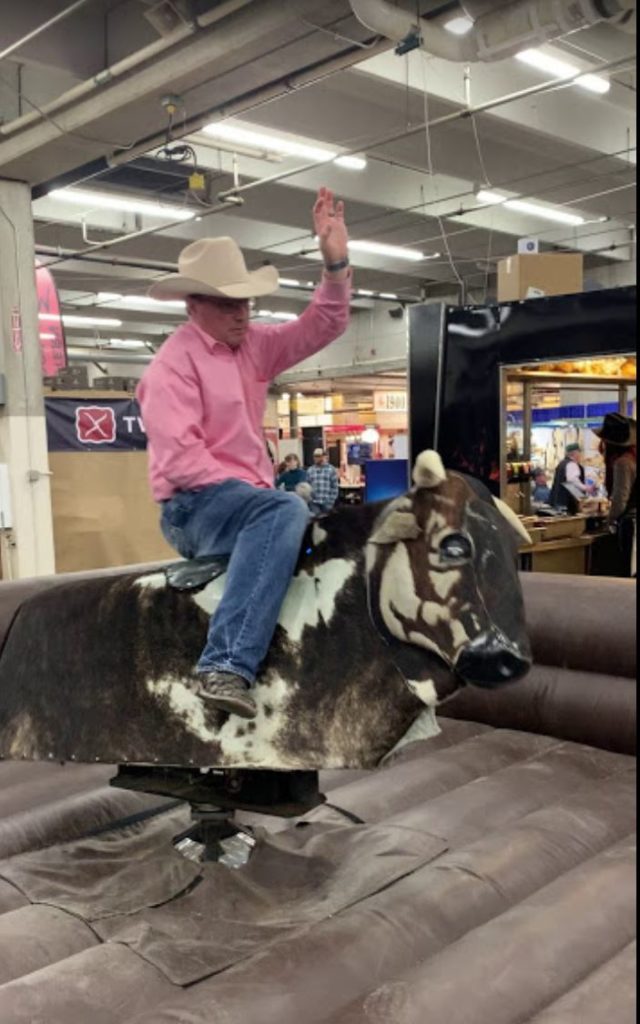
If you realize everything changes, there is nothing you will try to hold on to.
__________________________
Steve Jobs once said, “Remembering that I’ll be dead soon is the most important tool I’ve ever encountered to help me make the big choices in life. Because almost everything — all external expectations, all pride, all fear of embarrassment or failure — these things just fall away in the face of death, leaving only what is truly important. Remembering that you will die is the best way to avoid the trap of thinking you have something to lose. You are already naked.”
How can we treat the remembrance of our own mortality as something liberating that frees us to focus on what is truly important?
The prospect of death will likely never be pleasant, but by confronting it head-on before it confronts us, we may stop it from catching us unprepared. We will not fear death when our focus is on a life well-lived. I start every year with a practice I learned at a leadership development program. I imagine my own funeral and what my eulogy would be or how my obituary would be read and and I write it down. I revise it each year, as sort of a New Year’s Resolution of how I would want to be remembered and what I would want to do in the next year that would matter. The key point of the exercise is at the end when you ask yourself if that eulogy would reflect your life.
______________________________
The Four Noble Truths are a central teaching of Buddhism, and they provide the foundation for understanding and practicing the Buddhist path. They are:
-
Dukkha (Suffering) – The first noble truth is the recognition that life is characterized by suffering, or dissatisfaction. This includes physical and emotional pain, as well as more subtle forms of suffering such as boredom, restlessness, and a sense of incompleteness or unsatisfactoriness.
-
Samudaya (Cause of Suffering) – The second noble truth teaches that suffering is caused by craving or attachment, which arises from our desires and attachments to things that are impermanent and constantly changing.
-
Nirodha (Cessation of Suffering) – The third noble truth states that it is possible to overcome suffering by letting go of craving and attachment. When we are able to let go of our desires and attachments, we can experience a state of peace, freedom, and liberation known as Nirvana.
-
Magga (Path to the Cessation of Suffering) – The fourth noble truth outlines the Eightfold Path, a set of guidelines for ethical and spiritual living that leads to the cessation of suffering. The Eightfold Path includes right understanding, intention, speech, action, livelihood, effort, mindfulness, and concentration.
By understanding and practicing the Four Noble Truths and the Eightfold Path, Buddhists aim to overcome suffering and attain a state of peace and liberation.
buddhism is well equipped to prepare us for death. Buddhist know that how we live is how we will die. In Tibetan, Buddhism, the prospect of death is acknowledged and daily practices, prayers, and teachings that motivate us to live an ethical and happy life. And living with joy and kindness allows us to approach death with confidence and these. But it aspire for death to be a smooth, natural, and peaceful process, as we transition into our next post life experience. To achieve this takes practice, while we are alive – – – practice in the form of meditation, contemplation, and skillful action under the guidance of the dharma.
- Robin Greenfield, 37, is an author and activist teaching people how to live more sustainably.
- He doesn’t have a cell phone, credit cards or any government IDs.
- Greenfield lived in several tiny houses – some without running water or electricity.
I am an author and activist who lives completely off the grid.
I’ve put myself through multiple tests over the years to bring attention to living more sustainably like only eating food I foraged or grew for a year. I don’t own a cellphone, only a laptop to write from.
I began to transition to a more sustainable lifestyle in 2011. There was no moment of clarity or significant occurrence, just a realization that my daily actions were harmful to the earth. I committed to small changes in the beginning, and my journey took off from there.
How I removed myself from capitalism
It takes a lot of work to break free from capitalism. Before starting this journey, I owned my own marketing company.
In 2011, I started removing myself from the monetary system. I started pulling away from my company, destroyed my credit cards and closed my bank accounts.
Now, I only use cash, so I don’t need a bank account. If it is stolen, it’s gone. I will never own a house or rent an apartment, so I don’t need credit.
Tiny living helps me connect to nature
Living tiny helps me enjoy my life. Most of us live in far larger spaces than we need. The more stuff I had, the more time I spent taking care of it all.
My focus became living in harmony with plants and animals. I decided to start living in small, off-grid shelters I either built or purchased.
I stay on land in people’s gardens in exchange for helping the owners live more sustainably.
My first tiny house
In 2016, I quit my job as a marketer completely and moved into a 50-square-foot home – so small that I couldn’t even stand up in it.
I was living in San Diego and was searching on Facebook listings for a camper van to live in while I built my first tiny house. I found this small shed-like building listed for $950. I thought it was a typo.
I clicked on it and saw it was a wooden box on a trailer and priced correctly. I bought it and put a callout on Craigslist and to my 5,000 Facebook friends: “Hello community, I’m looking for someone who has an unused backyard and would benefit from hosting me and my tiny house. In return, I can help you transition to a more sustainable life.” Jim responded and I lived in his backyard for a year.
The trailer had a composting toilet, rainwater shower, and no electricity. When I moved away, I auctioned the trailer and donated the proceeds to a local charity.
Living almost off-grid in Orlando
My next tiny house was in Orlando. The goal was to commit a year to eating only foods that I had grown or foraged. I was working on a book on this topic while I was there.
Before moving to Orlando, I connected with a homeowner who had agreed to let me build a tiny house on her property. She was letting me live in her garden and giving me an extension cord connected to her power. Electricity was a huge bonus, allowing me to have a deep-chest freezer and use my laptop.
The Orlando tiny house cost less than $1,500 to build, including all the materials, which were sourced second-hand. It also included buying food for the volunteers – friends and social media connections – who helped me construct the house. I got some materials for free, such as pallets and old fencing, which I used for siding.
That house was just 10 feet by 10 feet, which was relatively comfortable.
The hardest thing about living off the grid is being responsible for everything
Depending on what off-grid set-up I’m living in, I am responsible for collecting water and disposing of waste.
People living on the grid often don’t think about water usage. Off the grid, you have to pay attention unless you have a well or running river.
In the summer of 2021 and again in the summer of 2023, I lived in a tiny house at the Wild Abundance, a school for carpentry, earth skills, and permaculture located near Asheville, NC.
In this off-grid structure, my water source was rain – how much you have is limited by how much you can store. If rain wasn’t enough, I would have to walk to a spring five minutes away to fill jugs.
I have no government ID and earn under the poverty threshold
My expenses vary greatly. Most of my money goes to food. If I am traveling, I spend more on food. If I’m in one place, I spend less as I prefer to grow and forage most of what I eat. I spend a lot on seeds, plants, supplies, or tools to store food like a dehydrator or pressure canner.
About 90% of my possessions now are for food – the food itself, storage, and cooking.
Right now, I own 600 items and 300 of them are jars for food. I currently don’t have a refrigerator or freezer so all my food has to be stored at ambient temperatures.
After food, I spend the most on getting around: trains, buses, or paying for gas when I catch rides with people.
It was important for me to completely remove myself from capitalist systems I don’t support. I have committed to not paying federal taxes therefore I earn less than the poverty threshold, which is $11,000 a year. Any income I make over this from press or books I’ve written, I donate. I have no form of ID. I don’t drive, so I don’t need a license. Last year, I destroyed my passport.
The way I live is an experiment in existence. We believe the norm is the only way but there are many other ways to live.
The longer I live in this way, the less I need
When people tell me that they’re thinking of living tiny, I tell them to start by downsizing their lives. Get rid of things you don’t need that don’t serve you.
Before you commit to living in any kind of tiny house, travel and stay in a few. Get a feel for what you like. If you have minimal money, building yourself is key. Schools like Wild Abundance can teach you how to build a tiny house from the ground up.
I am in love with the earth. The more time I spend outside and living in gratitude, the more I find that I don’t need things. This lifestyle is not about giving things up. It’s about filling your heart with something more meaningful than materialism.

